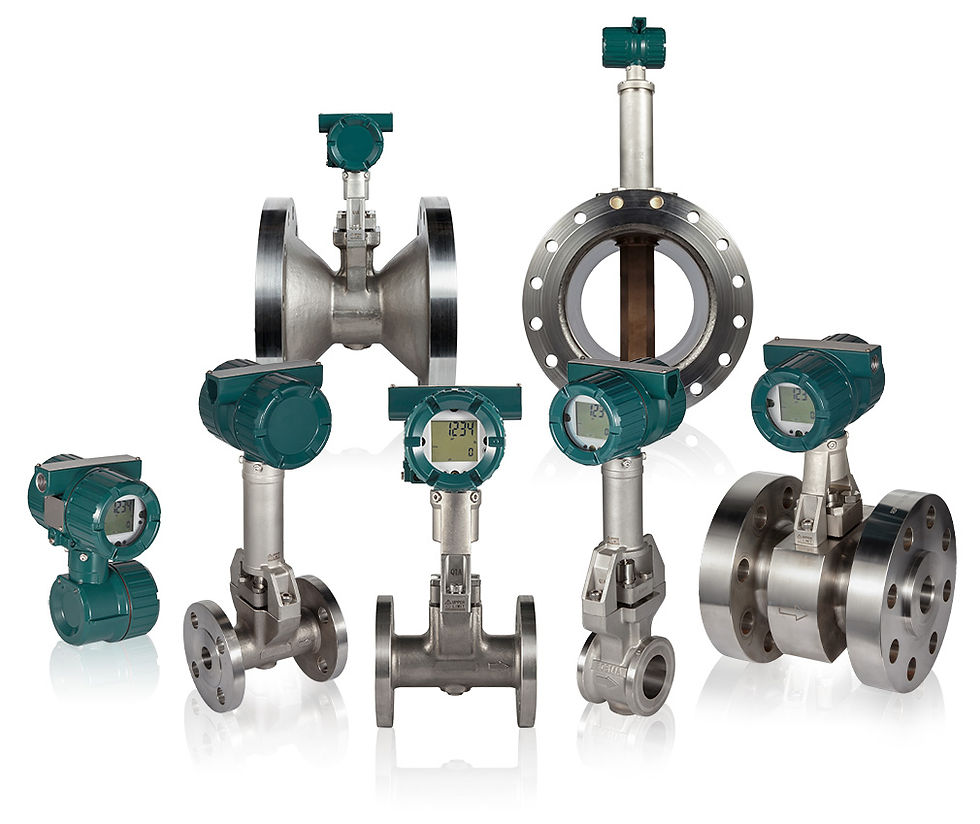The Potential Impact of Advancements in Flow Meter Technology on Industry and Applications
- ADMIN
- May 5, 2023
- 3 min read
Flow meters have become an essential component in various industries such as oil and gas, chemical, pharmaceuticals, food and beverage, and many others. The need for accurate flow measurement has increased with the advancement of technology and the demand for higher efficiency, productivity, and cost savings. The emergence of new technologies and the continuous improvement of existing ones have opened up new opportunities for the flow meter market. This article discusses the potential impact of advancements in flow meter technology on industry and applications.
Emerging Technologies in Flow Measurement:
There have been significant developments in flow meter technology in recent years. These developments include new types of flow meters and improvements in existing ones. Some of the emerging technologies that have the potential to impact the industry are:
Coriolis Flow Meters: These flow meters use the Coriolis effect to measure the mass flow rate of fluids. They offer high accuracy and reliability and are suitable for various applications such as custody transfer, batching, and blending.
Ultrasonic Flow Meters: These flow meters use ultrasonic waves to measure the flow rate of fluids. They are non-intrusive and can measure the flow rate of various types of fluids, including gas, liquid, and steam.
Thermal Mass Flow Meters: These flow meters measure the mass flow rate of gases by using the thermal properties of the fluid. They are highly accurate and can measure low flow rates.
Vortex Flow Meters: These flow meters use the von Karman vortex street principle to measure the flow rate of fluids. They are highly reliable and can measure the flow rate of various fluids such as gas, liquid, and steam.
Advancements in Accuracy and Reliability:
Advancements in flow meter technology have led to increased accuracy and reliability in flow measurement. These improvements have been achieved through the use of advanced materials, sensors, and signal processing techniques. Some of the advancements that have improved accuracy and reliability in flow measurement are:
Improved Signal Processing Techniques: Signal processing techniques such as digital signal processing have improved the accuracy and reliability of flow meters.

Advanced Materials: Advanced materials such as ceramics and composites have improved the durability and reliability of flow meters.
Advanced Sensors: Advanced sensors such as fiber optic sensors have improved the accuracy and reliability of flow meters.
Potential Impact on Industry and Applications:
The potential impact of advancements in flow meter technology on industry and applications is significant. These advancements have the potential to:
Increase Efficiency: Advancements in flow meter technology can increase the efficiency of industrial processes by providing more accurate flow measurement.
Reduce Cost: Accurate flow measurement can help reduce the cost of production by optimizing the use of resources such as energy and raw materials.
Improve Product Quality: Accurate flow measurement can help improve product quality by ensuring the correct amount of ingredients is used in the production process.

Increase Safety: Accurate flow measurement can help increase safety in industrial processes by detecting leaks or other flow anomalies. Conclusion: In conclusion, advancements in flow meter technology have the potential to revolutionize the industry and applications. The emergence of new technologies such as Coriolis flow meters, ultrasonic flow meters, thermal mass flow meters, and vortex flow meters, and the continuous improvement of existing ones have increased the accuracy and reliability of flow measurement. The potential impact of these advancements on industry and applications is significant, including increased efficiency, cost savings, improved product quality, and increased safety. The flow meter market is expected to continue to grow as new technologies emerge, and industries seek more accurate and reliable flow measurement solutions.
Comments